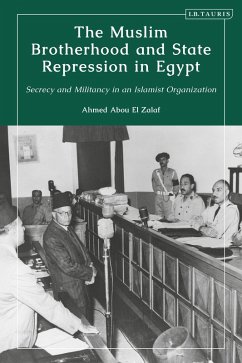Since the Second World War, the Muslim Brotherhood in Egypt faced periods of extensive state repression, between 1948-1951 and 1954-1970 and again after 2013. These mihan or "ordeals", as members call them, were characterised by a shift from overt political activity to clandestine organising, and despite their importance have remained little studied. This book uses extensive archival research to uncover what took place when the organisation was forced unground and how and why it survived. It combines social theory with a vast array of primary source material such as autobiographical accounts produced by members, Egyptian court documents accounts by members of the Egyptian military or intelligence officers, and reports by British and American diplomats and intelligence officers. The result is a new bottom-up perspective on the Brotherhood's structure that goes beyond the role of leaders such as Sayyid Qutb to reveal it as both an overt political organisation and a secretive one able to withstand extended and harsh periods of persecution.


